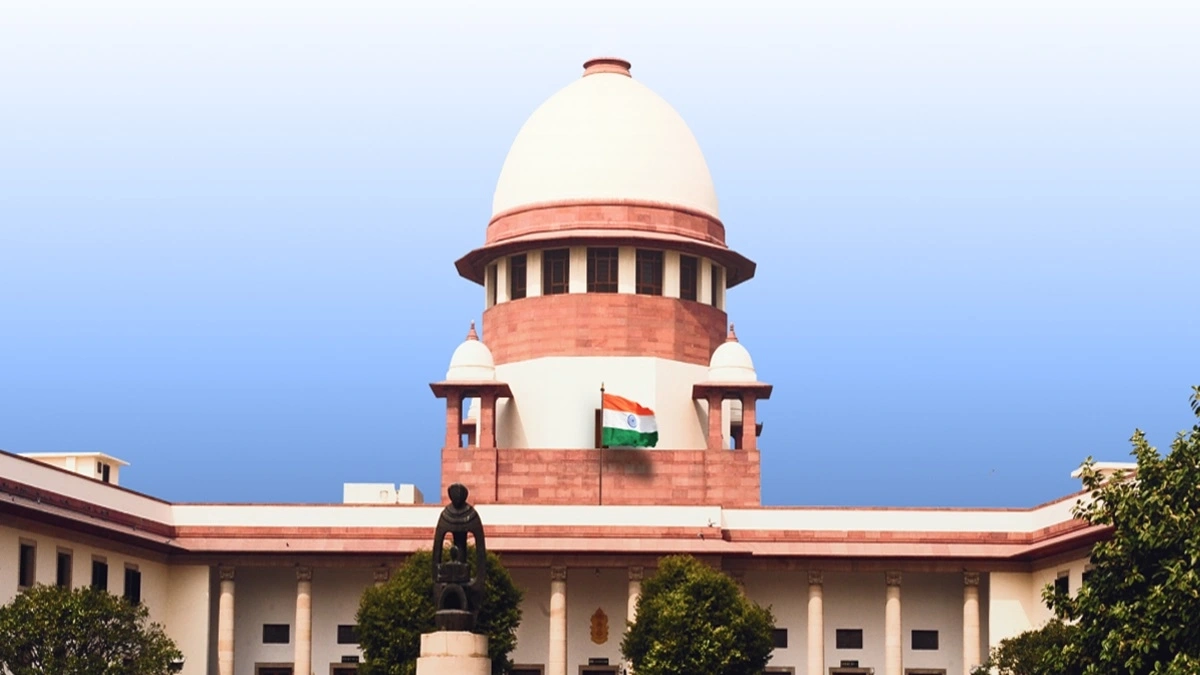MAYA GOPINATHAN v. ANOOP S.B. & ANR. (2024)
Case no.: SLP (Civil) No.13398/2022
Court: Supreme Court of India
Bench: Justice Sanjiv Khanna and Justice Dipankar Datta
Date of judgment: 24th April 2024
Parties
Petitioner: Maya Gopinathan
Respondent: Anoop S.B. & Anr.
INTRODUCTION
The term ‘’Streedhan’ has been derived from the words ‘Stri’ meaning a woman and ‘dhana’ means property. Combining these two terms gives ‘property of woman’ i.e. her Streedhan. Any kind of movable and immovable property such as money, ornaments, deposits, investments, receivables and immovable property in any form may constitute that a woman receives before her marriage, at the time of her marriage, during childbirth or widowhood, primarily from her parents, relatives or in-laws is her Streedhan.
A woman’s right to her Streedhan is protected under Section 14 of Hindu Succession Act 1956 read with Section 27 of Hindu Marriage Act 1955 which states “Even if it is placed in the custody of her husband or her in-laws, they would be deemed to be trustees and bound to return the same if and when demanded by her.”
FACTS
In the present case, on 4th May 2003, the marriage of the appellate and first respondent was solemnized as per Hindu rites and customs. Appellate claims that her family at the time of marriage gifted her 89 sovereigns of gold. In addition, father of appellate handed over a sum of Rs. 2,00,000 to the first respondent after the wedding. As per the appellate under the pretense of safekeeping, the first respondent took custody of all her jewelry and entrusted the same to the second respondent. Furthermore, the appellate claimed that all such jewelry was misappropriated by respondents in order to discharge their outstanding financial liabilities. The appellate filed a petition before Family Court in 2009 to recover the amount of Rs. 2,00,000 along with the value of jewelry. In addition, the appellate also submitted a petition for dissolution of marriage. Family Court by a decree of divorce dissolved the marriage between the parties and was of the view that indeed respondents had misappropriated the gold jewelry of appellate and thus she was entitled to recoup the loss caused by such misappropriation. The respondents aggrieved by the order filed an appeal before Kerala High Court owever, the decree for dissolution of marriage was not challeneged. The appeal was partly allowed by the Kerala High Court and the relief granted by the Family Court to the appellate was set aside. Following this, the present appeal is filed before the Supreme Court against the final judgment of High Court.
ISSUES
- Whether the appellate could establish misappropriation of jewelry?
- Whether High Court erred in setting aside the relief granted by the Family Court?
JUDGMENT
The Bench observed that stridhan is an absolute property of a woman and while the husband has no control over the same, he can use it in times of distress. However, he has a moral obligation to restore the same or its value to his wife. The judgment given in the case of Rashmi Kumar v. Mahesh Kumar Bhada was referred by the court where it was held by the Supreme Court that “He may use it during the time of his distress but nonetheless he has a moral obligation to restore the same or its value to his wife. Therefore, stridhan property does not become a joint property of the wife and husband. The latter has no title or independent dominion over the property as owner thereof.”
The Bench constituting Justice Sanjiv Khanna and Justice Dipankar Datta observed that “The High Court, thus, failed to draw the right inference from facts which appear to have been fairly established. That apart, we have neither been shown nor do we know of any binding precedent that for a claim of return of stridhan articles or money equivalent thereof to succeed, the wife has to prove the mode and manner of such acquisition. It was not a criminal trial where the chain of circumstances had to be complete and conclusively proved, without any missing link.”
Supreme Court declared the decision of High Court legally unsustainable assigning it to the erroneous approach that required a standard of proof as if it were seized of a criminal trial for proving misappropriation of jewellery by respondent. Supreme Court noted that the findings of High Court were based on assumptions and suppositions rather than evidence. Court observed that in civil matrimonial cases, the standard of proof is of preponderance of probabilities and not of beyond reasonable doubt.
The Court ordered that “Mere upholding of the decree of Family Court at this distance of time, without anything more, would bring about injustice to her. Bearing in mind the passage of time, the escalation in cost of living, and in the interest of equity and justice, we deem it fit in exercise of power conferred by Article 142 of the Constitution of India to award to the appellant a sum of Rs 25,00,000.”
CONCLUSION
The Supreme Court in this case reaffirmed that a husband has no control over his wife’s stridhan and recognized the absolute right of a woman over her property. The judgment reinforces the autonomy of women over their pre and post matrimonial properties asserting that any contribution by woman to her partner even in the form of loan must be returned.


Add a Comment